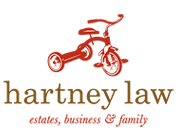
Estate planners as a whole are trained to and skilled at balancing a plethora of variables in a family’s circumstances deploying legal principals, rules, regulations, and statutes. It’s a very tricky job, I can tell you. For every action, there are are a set of effects to deal with as a consequence of that action. Our minds spin round and round examining the facts from all kinds of angles. We machinate to find ways to reduce taxes, avoid probate, prevent conservatorships. Lawyers deal with facts, not feelings; circumstances, not relationships. It’s so much easier to get that tax bill down than to address a painful issue such as a child’s uncontrolled drug abuse.
And that’s a very sad problem. I can’t tell you how many clients I have met who were negatively impacted by the unintended consequences of their parents’ and grandparents’ estate plans. These were plans that did not take into account the character, maturity, and relationships of the people involved, that did not envision the inevitability of carrot & stick struggles, game playing, strong-arming, jockeying for position, favoritism, and basically all manner unhealthy behavior around money, love, and power.
I know how proud I am of the client for whom I save a whopping $48 million in future taxes. That’s quite a feat. Or the other for whom I help create a safe stash of cash for their future potential needs as crypto-millionaires. You bet, my ego can really relish in that. But the more interesting and difficult questions I put to myself are:
- “Did I set this family up to succeed emotionally, psychologically, and spiritually with the resources available in a good and nourishing way?”
- “Will the children have good guidance and mentorship around money they will inherit?”
- “If old enough, are the kids being taught how to be good human beings or are they being taught that they only matter because they have or come from money?”
- “Are the fiduciaries involved truly trustable with the family resources?”
- “Are the trustees equipped with the right tools and know-how to use incentives in a loving way?”
- “What are the shadow components of this family that I might want to know to help future generations work with that material?”
In the planning business, there is a certain class of attorney—the “tax jockeys”—who are so steeped in tax law, they can almost literally squeeze blood out of a turnip. Seriously. These people, both men and women, know every trick in the book. They give high-priced CLEs, drive fancy cars. These are celebrities in the estate planning world. People pay them huge consulting fees and they write books the rest of us keep on our nightstands. Yes, I have one that’s even autographed in my own bedroom. Thank goodness they’re there. I have been able to really do some nifty planning because of the groundwork they do.
But I have a complaint about the “tax jockey” approach to planning. Tax avoidance often treats the children as things, rather than as people. Tax planners see a child and go, “Oh good! We have a distributee to whom we can gift or sell some of your estate to get your tax bill lower.” That’s excellent from a tax perspective. But few of these lawyers are following up with the questions, “What’s this child’s maturity and psychology like? Is this child on a good road in life? How will this plan impact the family members? Do family members know how to use money and resources wisely? Do they have a strong heart? A clear mind? A purpose in life? Are the parents (my clients) attempting to control their children with money? How healthy is this system to begin with?
How many times I have seen a plan based solely on tax savings backfire violently on a family. Great, we saved $200,000; $500,000, $Millions on taxes. But we lost our child’s heart. Wonderful, the family’s assets have gone up in value and we don’t owe any taxes, but our child’s spirit is broken. Gifting, selling or otherwise USING a beneficiary as a financial tool to lower the client’s tax profile is an example of using people and loving things. This is the essence of the Ebenezer Scrooge archetype.
When I ask my colleagues about whether they inquire into the well-being of family members or into the nature of the family culture in their planning, almost all say that we should. It’s good practice. But lawyers won’t get sued if a family member falls off the wagon and ends up killing someone because they received a distribution at the height of a bender. We won’t get sued if a trust doesn’t have a trust protector or an embedded special needs trust as emergency tools for the very possible, probable, (inevitable?) dark times that befall our children’s lives. But we sure will get sued if our clients end up having to pay excessive estate tax.

 A later-in-life attorney, Martha Hartney opened the practice in 2010 to serve the people she loves because she is committed to helping moms and dads bring their greatest gifts into parenting fearlessly and with joy and making sure children are completely cared for if something happens to their parents.
A later-in-life attorney, Martha Hartney opened the practice in 2010 to serve the people she loves because she is committed to helping moms and dads bring their greatest gifts into parenting fearlessly and with joy and making sure children are completely cared for if something happens to their parents.
